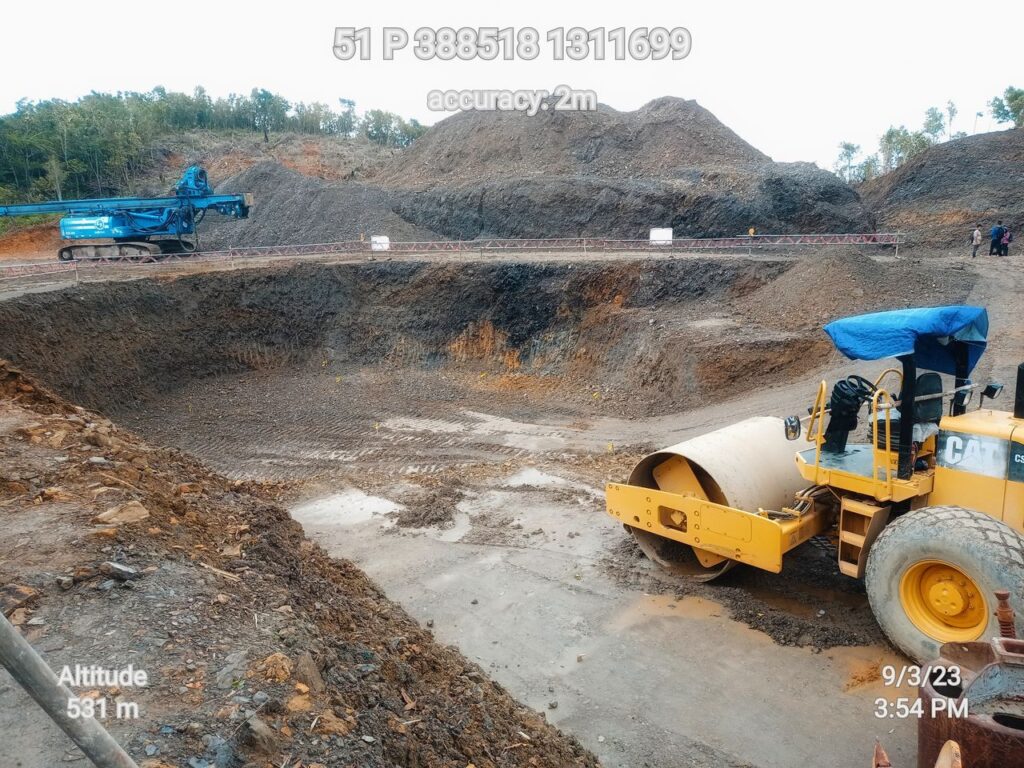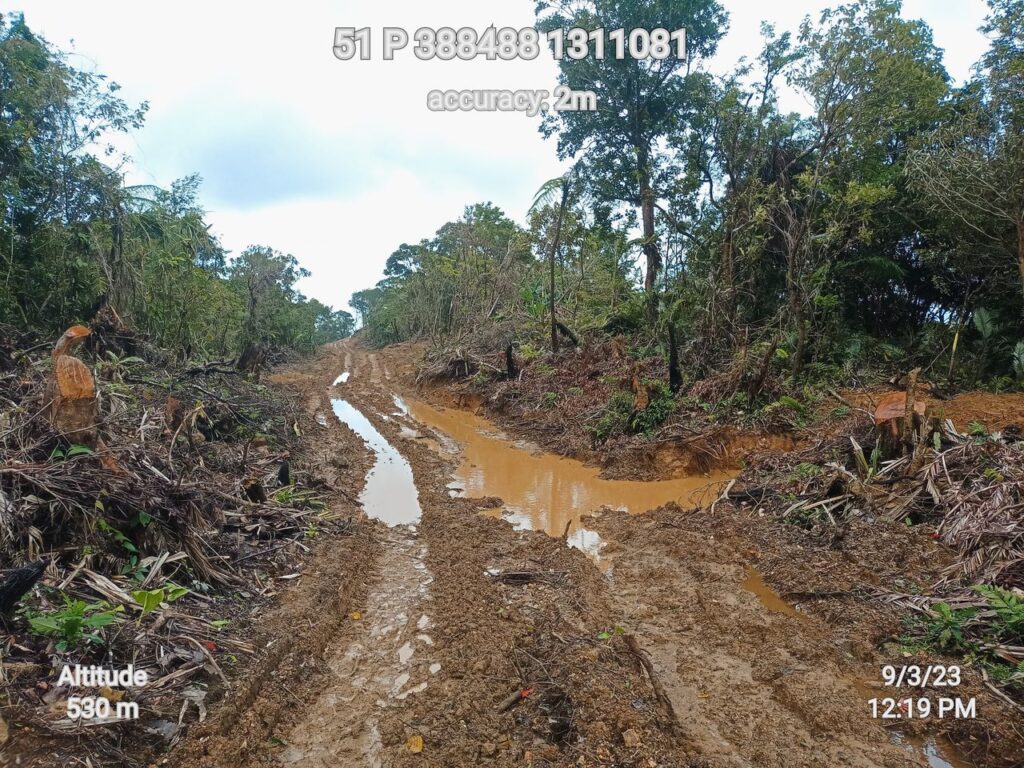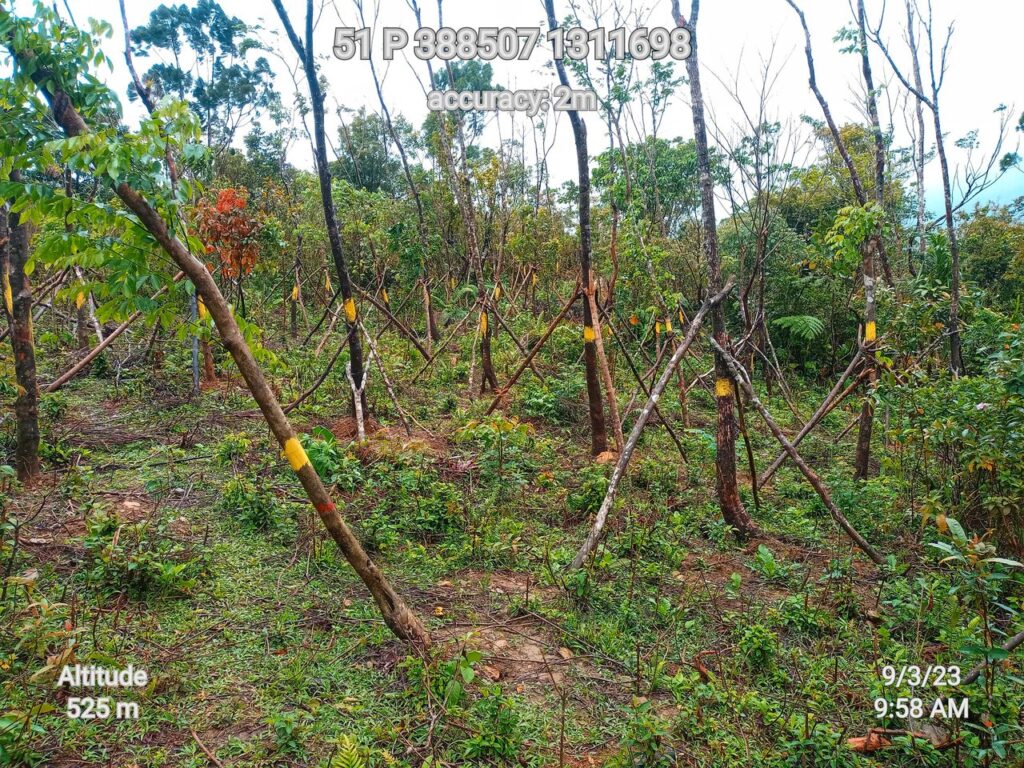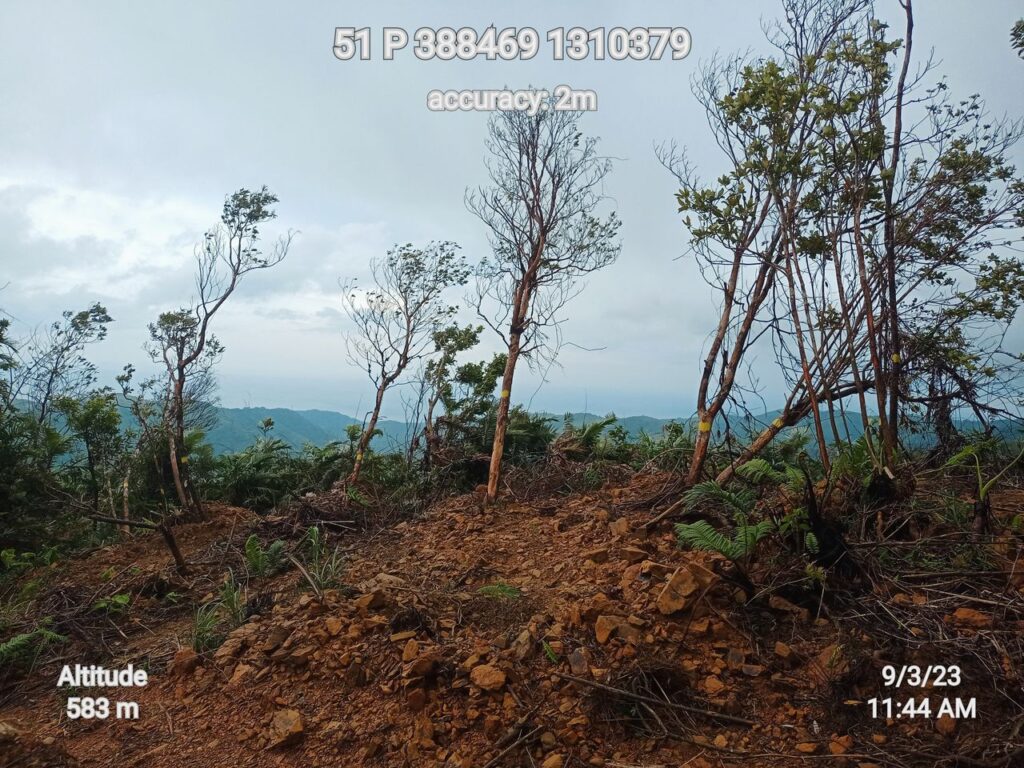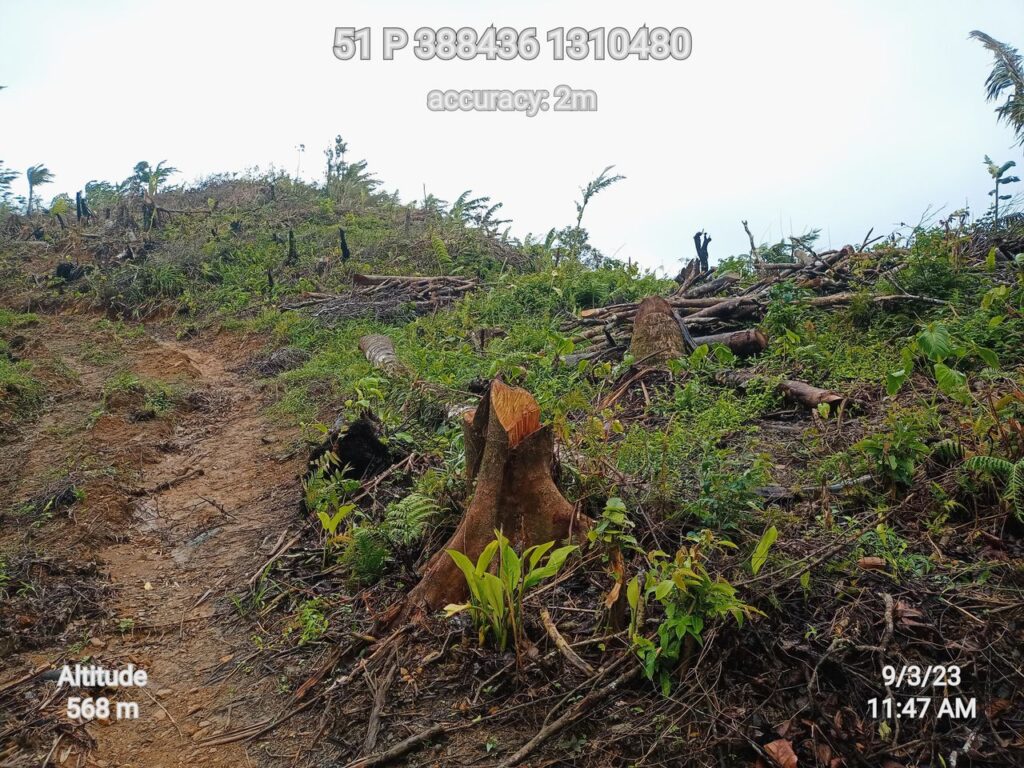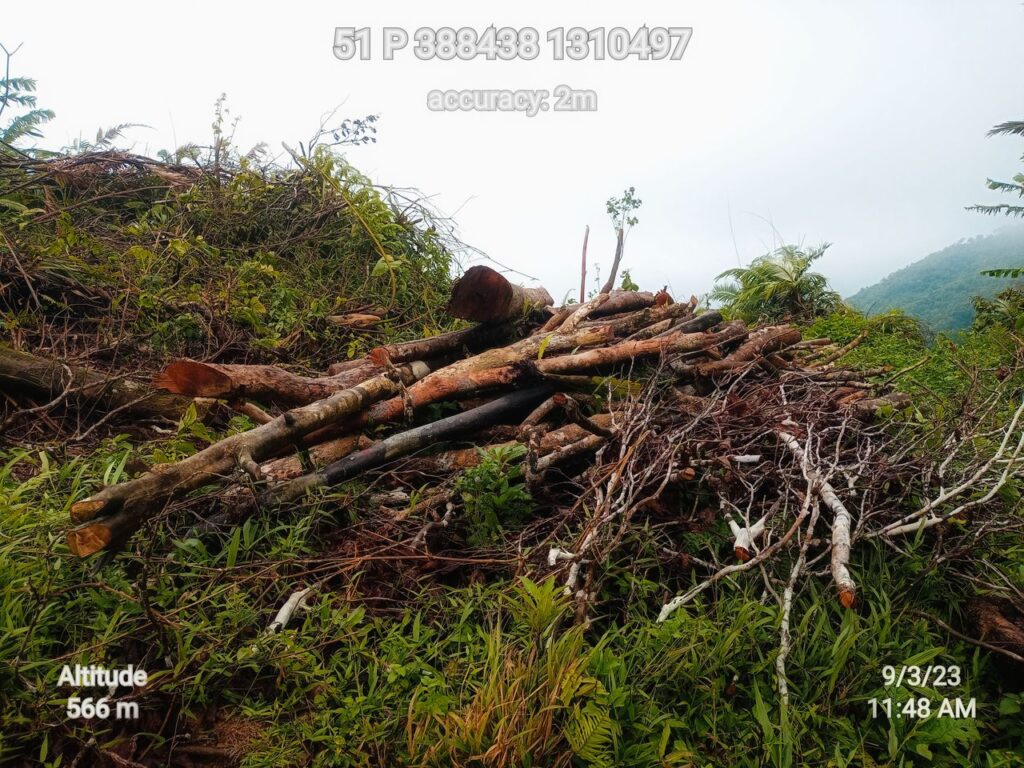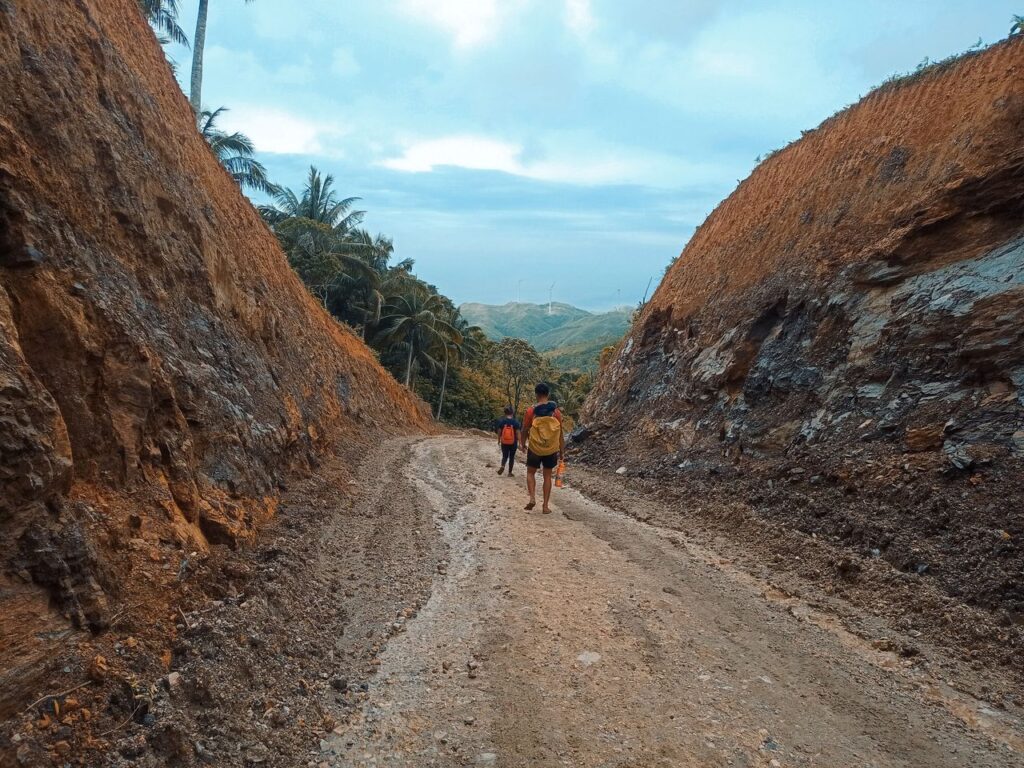
We neither oppose development nor renewable energy initiatives. However, our stance is firmly rooted in a comprehensive evaluation of any project, with a commitment to ensuring that the potential harms do not outweigh the benefits for communities and the environment, all while considering the long-term impacts, risks, and trade-offs.
As a Civil Society Organization (CSO) based in Malay, Aklan that promotes environmental sustainability, the office Sangguniang Bayan of Malay sought the assistance of Aklan TREKKERS (Traditional and Ridge-to-Reef Ecological Key Knowledge for Environmental Resiliency and Sustainability) Inc. or Aklan Trekkers on July 12, 2023, to accompany them during their inspection of the ongoing Nabas Wind Power Project Phase Two (NWPP-2) construction by PetroWind Energy, Inc. (PWEI) in Pawa, Nabas, Aklan scheduled for July 13, 2023. Subsequently, on July 30, 2023, the Sangguniang Bayan of Malay asked our services once again, this time to conduct an inspection along the Daeamuan River, which revealed the unsettling presence of creek upstream flowing with silted water on a fine weather.
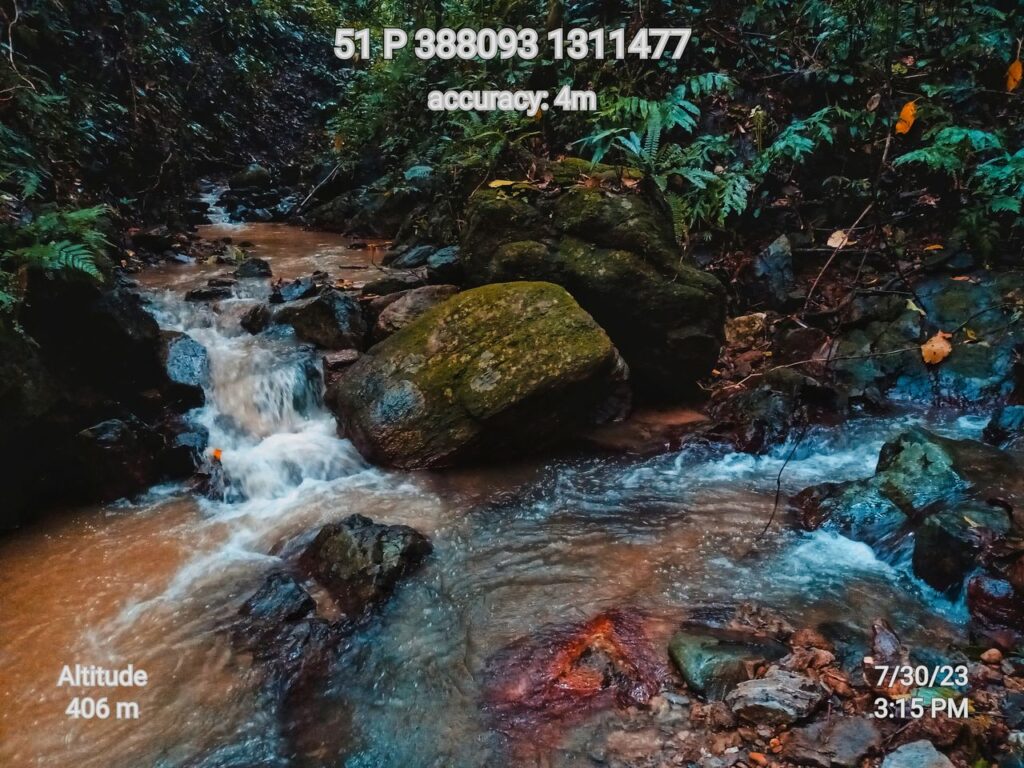
On August 03 and 28, 2023, the coastal waters of Malay underwent a transformation from the usual blue hue to a yellowish tint following an overnight downpour, likely due to runoff from the mountains of Pawa where the project is currently underway. Significantly, these mountains are an integral part of the Northwest Panay Peninsula Natural Park (NPPNP), encompassing the Nabaoy River Watershed, an important water source of mainland Malay and Boracay Island.
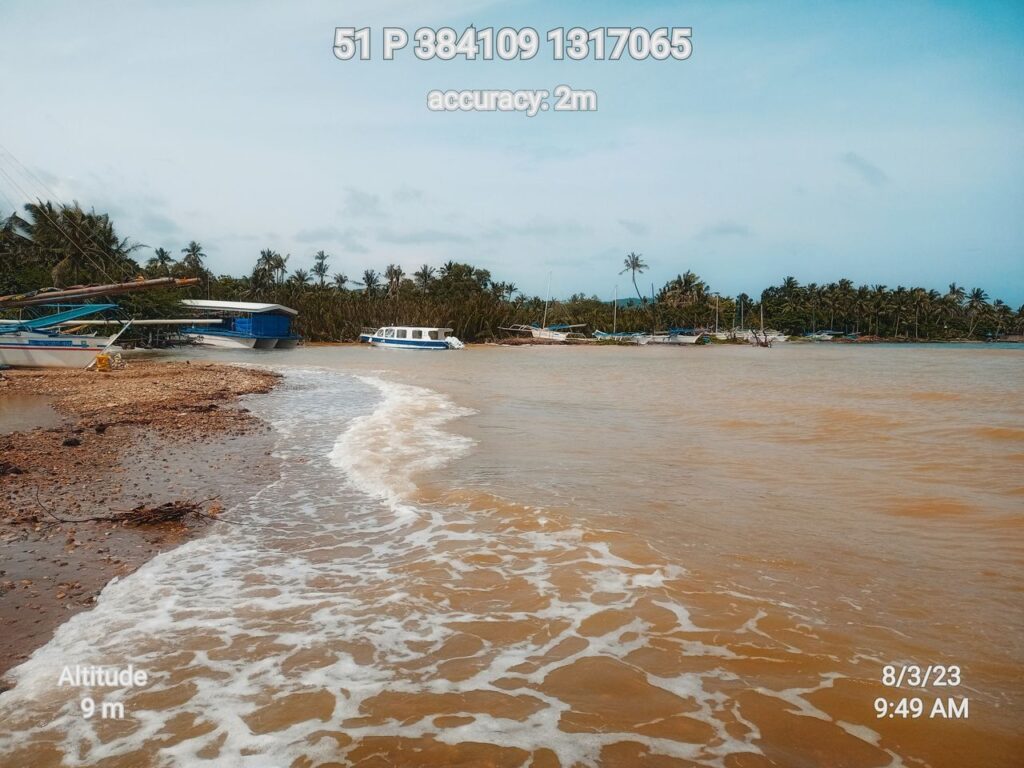
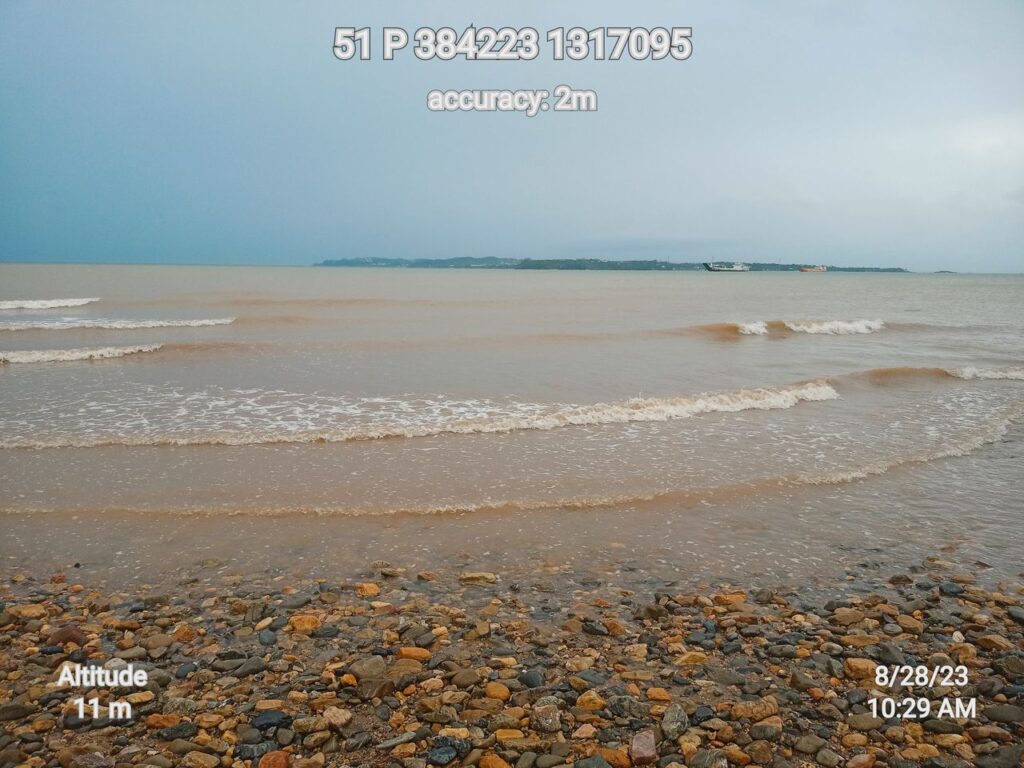
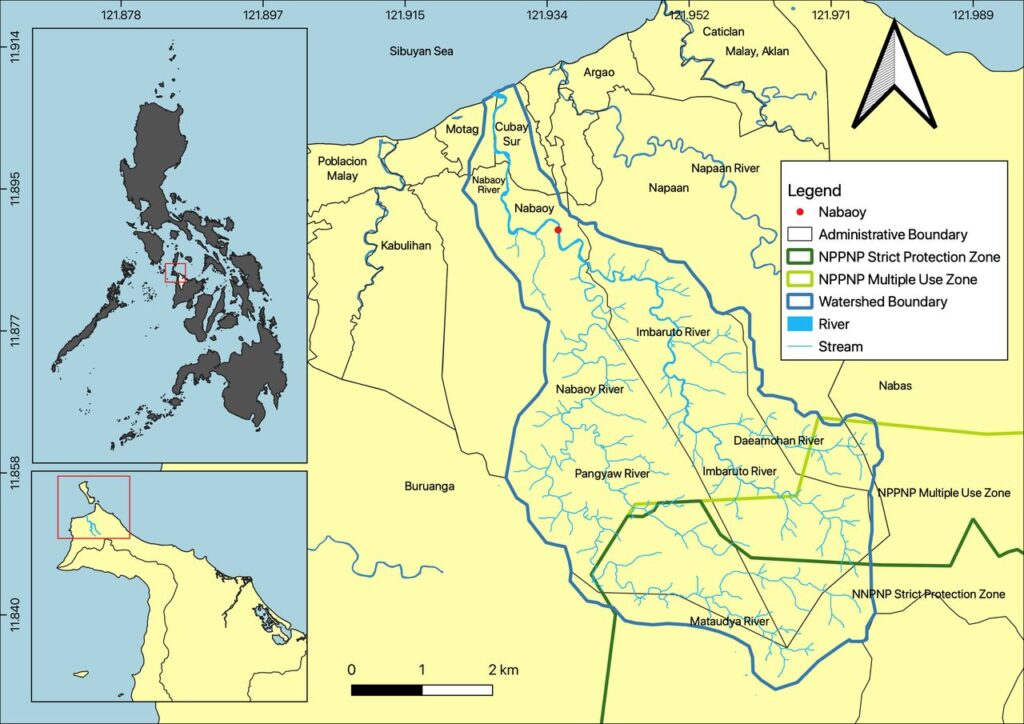
The NPPNP stands as one of Panay Island’s largest low-elevation tropical rainforests, serving as a habitat for a diverse range of endemic and endangered flora and fauna, including the Visayan Warty Pig, Philippine Macaque, Negros Bleeding Heart Dove, and Visayan Tarictic Hornbill. Significantly, the park’s lush forests and flowing rivers are essential sources of sustenance and livelihoods for neighboring communities, rendering it both ecologically vital and economically significant.
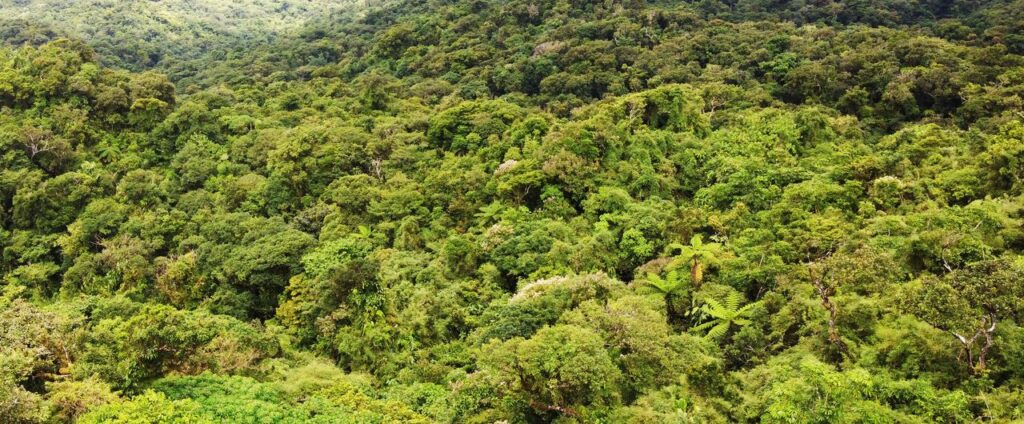
The Sangguniang Bayan of Malay has also asked the support of Philippine Initiative for Conservation of Environment and the People Inc. or PhilinCon in their endeavor to halt this project. PhilinCon’s unwavering commitment to protect the NPPNP paved the way to create the Protect the Northwest Panay Peninsula Natural Park Coalition to help the LGU Malay to stop the project. The coalition includes PhilinCon, Aklan Trekkers, Wildlife Conservation Protection Society (WCPS), Living Laudato Si’ Philippines, Diocese of Antique Social Action Center, Boracay Foundation Inc., Pandan, Antique Union for Conservation, Rotary Club of Metro Kalibo, Aklan Press Club, and Antique Trail Runners. The coalition has released a position paper demanding the stoppage of the project.
URGENT CALL TO ACTION
Protect Boracay’s Main Water Source and Save Panay’s Last Low Lying Forest
Stop NWPP-2!
We call for louder and bolder actions to immediately STOP this ongoing ecological atrocities inside the NPPNP!
Read our Position Paper and the Biodiversity Survey conducted by our volunteers below:
Position Paper bit.ly/NPPNPPositionPaper2023
Biodiversity Survey: bit.ly/BiodiversitySurveyNPPNP2023
The Nabas Wind Power Phase 1 (NWPP-1) project has already caused irreversible damage to the Napaan River Watershed and its wildlife, while the harm inflicted by the ongoing construction of Nabas Wind Power Phase 2 (NWPP-2) to the Nabaoy River Watershed is already evident. During our inspection together with LGU Malay, PhilinCon, WCPS, and other volunteers to the project and impact sites on September 03, 2023, we observed how the newly excavated road aggravated the existing damage to the Napaan River. There were trucks transporting excavated soil, but a significant amount was also being dumped to the side. Consequently, rainwater runoff flowed unchecked into streams, eventually reaching the river and, ultimately, the sea. The gabions, designed to catch silt and sediment, were poorly implemented, hastily constructed, malfunctioning, and overwhelmed with silt-laden water and sediment.
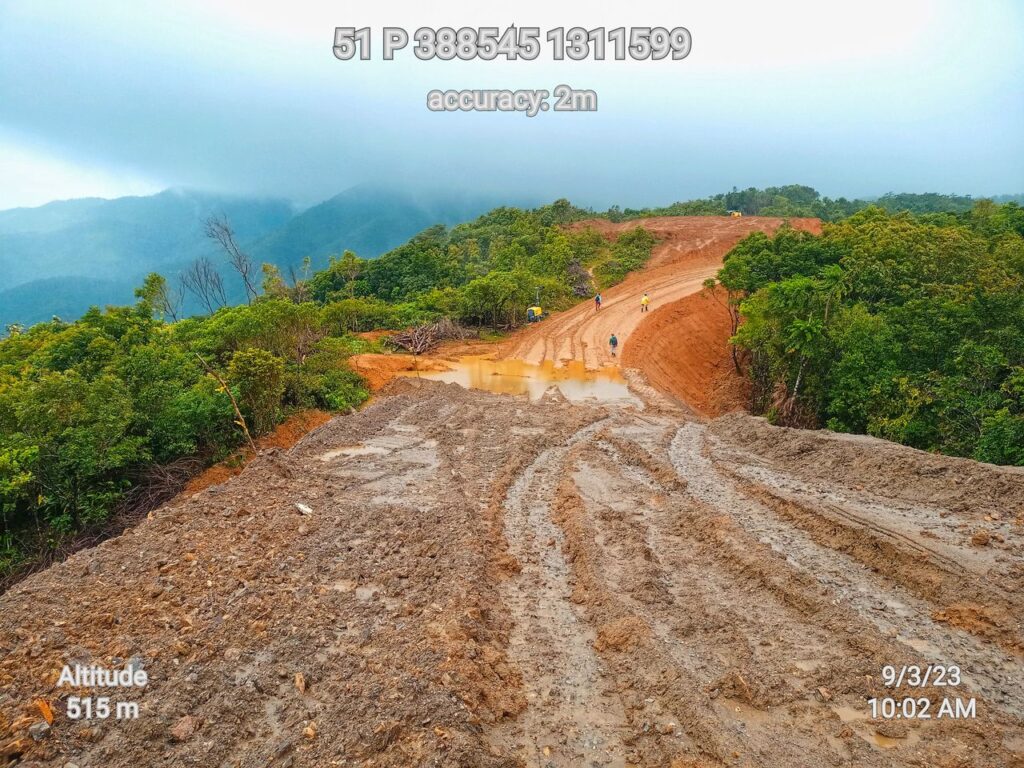
Despite ongoing efforts of LGU Malay and Barangay Nabaoy Council to stop this project, proponents have rushed the construction, as already apparent when we reached the areas designated for the wind turbine platforms. Excavation for one of the platforms is nearing completion, along with the addition of new unfinished gabions. Unfortunately, the earth balling process was not administered properly, marked by haste. Newly relocated trees from recent earth balling were inadequately planted, with some left half-buried, exposing their roots. Others endured weathering, while some leaned or were affected by strong winds.
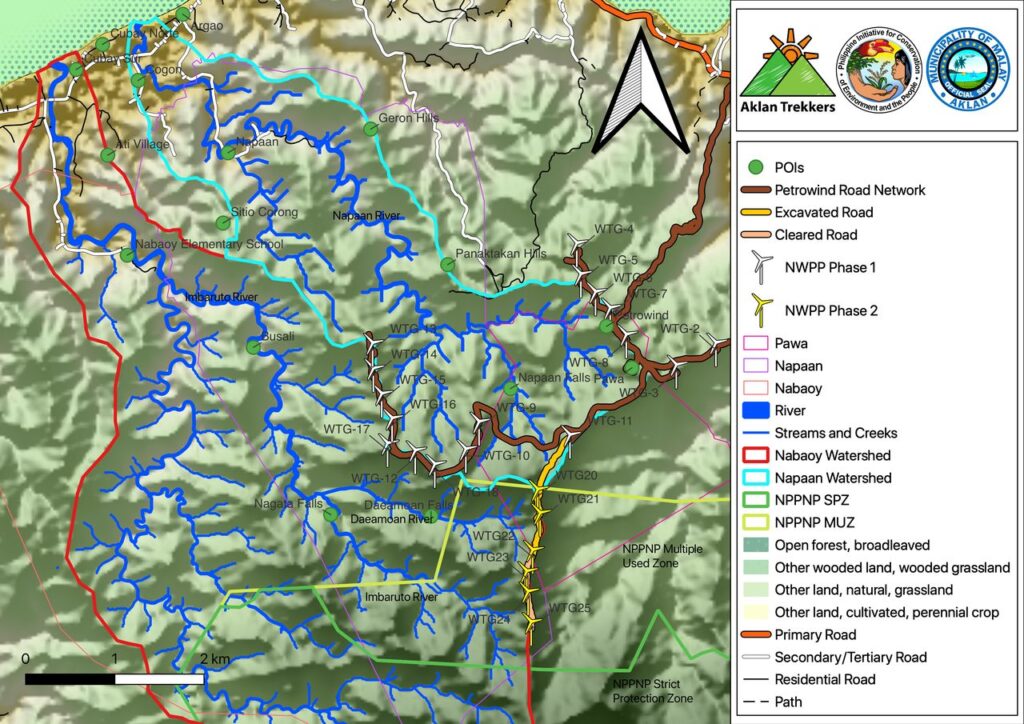
The reckless clearing of forest trees to make way for this development has imposed additional stress on the already recovering ecosystem within this specific area of the NPPNP. This has led to a reduction in the tree cover of the Nabaoy River Watershed, affecting water quality and disrupting critical wildlife habitats, ultimately impacting biodiversity and the forest’s fragile ecosystem.
When we weigh the benefits against the damages this project presents, it becomes painfully evident that the community of Nabaoy in Malay, Aklan, stands to gain little while enduring significant harm. What’s particularly disheartening is that they were not even consulted or included in the Environmental Impact Assessment (EIA), underscoring the need for a more inclusive and comprehensive evaluation process.
Our stance is grounded in the pursuit of responsible and sustainable development, ensuring that it benefits both communities and the environment. We call upon the NPPNP Protected Area Management Board (NPPNP PAMB) to revoke its endorsement of the project, the Department of Environment and Natural Resources (DENR) to cancel the Special Agreement on Protected Areas (SAPA), and to the proponent to immediately halt the project and conduct a thorough assessment of the project’s impacts. It is crucial to explore more conscientious alternatives that prioritize the well-being of our communities, the preservation of our environment, and the legacy we leave for future generations.
- Defending Northwest Panay Peninsula Natural Park: An Urgent Call to Halt the Nabas Wind Power Project Phase 2 - October 9, 2023
- Pagbueoligan Para sa Maytaraw: Aklan Trekkers’ 2nd Upland Outreach Mission Returns to Sitio Maytaraw to Bring Sustainable Support to the Community - September 19, 2023
- 2nd Aklan Hammock Festival: A Weekend of Hammock Camping with Purpose, Music, and Fun, Spotlighting one of Aklan’s Hidden Treasures and Supporting the 2nd Upland Outreach Mission to Sitio Maytaraw - September 19, 2023
